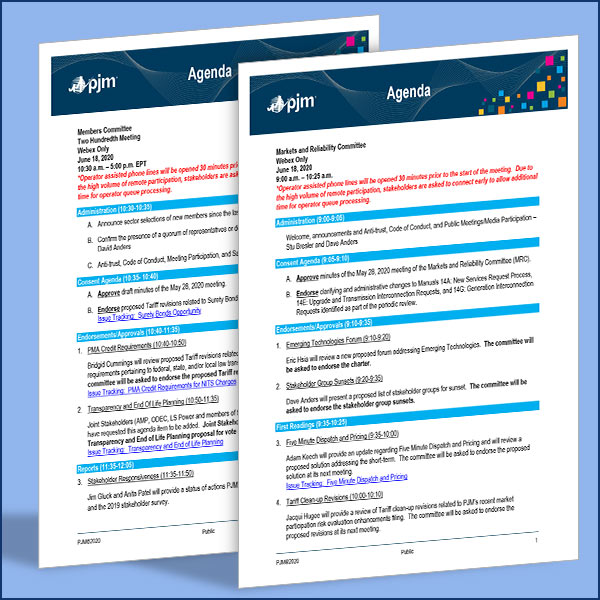MISO last week said it will file a one-time waiver with FERC to make sure market participants can replace load-modifying resources (LMRs) impacted by the coronavirus pandemic.
Some LMRs that cleared in the Planning Resource Auction in April “may be unable to perform at their full accredited value as a result of COVID-19-related temporary — or, in some cases, permanent — closure of businesses that constitute their LMR assets,” MISO Manager of Capacity Market Administration Eric Thoms said during a Resource Adequacy Subcommittee teleconference Wednesday.

If FERC accepts MISO’s filing, those market participants will have the opportunity to use new LMRs with MISO to “bolster their portfolio,” Thoms said.
The waiver won’t allow members to change existing LMR registration records, Thoms said. Instead, market participants must make a replacement registration in MISO’s capacity tracking tool. That way, the RTO will have an “audit trail of replaced LMR resources and modified underlying assets,” Thoms said.
MISO plans to make the filing this month and will ask the commission for a July 1 effective date. From there, market participants will have 90 days through September to register replacement LMRs.
Usually, MISO market participants must register existing LMRs by Feb. 1, new LMRs for use in fixed resource adequacy plans by Feb. 15 and new LMRs not used in fixed resource adequacy plans by March 1 for the upcoming planning year.
“We’ll have an ability to reassess the effects of the pandemic after 90 days,” Thoms said, adding that MISO will have the “option to request a renewal of the waiver” if the pandemic is still affecting LMRs’ ability to respond.
But stakeholders argue that MISO isn’t considering the full gamut of difficulties wrought by the pandemic.
Xcel Energy’s Kari Hassler asked how the waiver could help a large LMR that permanently closes, taking with it both load and some measure to control it.
Thoms said MISO isn’t currently considering any reductions in planning reserve margins from load losses caused by the pandemic.
Multiple stakeholders argued that reserve margins should also be lowered because the load that needed to be curtailed no longer exists.
“I agree that there’s a mismatch here,” Customized Energy Solutions’ Ted Kuhn said.
Thoms said MISO does not yet know what LMR closures might be temporary or permanent.
“We have a financially binding construct that is already settled,” he explained. He also said impacted market participants are not obligated to use the waiver and can instead notify the RTO through the MISO Communications System that their LMRs are less available. LMRs are required to respond to at least five emergency events per year.
Alliant Energy’s Mitch Myhre said his utility has had difficulties even performing the MISO-required LMR testing, as some large commercial and industrial customers haven’t been operating as usual. Other stakeholders said they were experiencing similar testing difficulties.
This is MISO’s second filing for a waiver of Tariff requirements in response to the pandemic. FERC granted the RTO’s request for a 60-day extension of its June 25 site control demonstration deadline late last month as the pandemic slowed construction and shuttered government offices (ER20-1794). (See “Queue Waiver Request Before FERC,” Wary of Contagion, MISO Bars Visitors for 2020.)




